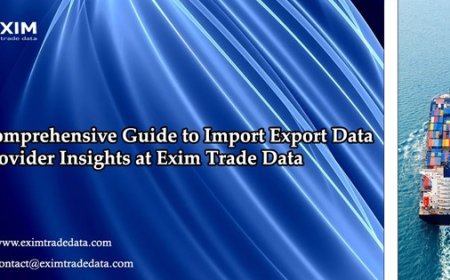Mastering B2B Sales Qualified Leads for Stronger Growth
In today’s hyper-competitive B2B landscape, identifying the right leads and pushing them efficiently through the sales funnel is more crucial than ever. While marketing generates a wide pool of leads, not all of them hold the potential to convert. That’s where B2B Sales Qualified Leads (SQLs) come into the picture—these are the leads that your sales team needs to focus on for better ROI and growth acceleration.

In todays hyper-competitive B2B landscape, identifying the right leads and pushing them efficiently through the sales funnel is more crucial than ever. While marketing generates a wide pool of leads, not all of them hold the potential to convert. Thats whereB2B Sales Qualified Leads
(SQLs) come into the picture these are the leads that your sales team needs to focus on for better ROI and growth acceleration.
What Are B2B Sales Qualified Leads?
B2B Sales Qualified Leads are prospects who have shown a clear intent to buy and meet the necessary qualification criteria, such as budget, authority, need, and timeline (BANT). These leads are further along the buyer's journey, having been vetted by the marketing team and passed to sales for direct engagement.
They stand apart from marketing qualified leads (MQLs), as theyve demonstrated strong buying signals and are ready for personalized, solution-oriented conversations.
Why Do B2B Sales Qualified Leads Matter?
Converting a prospect into a paying customer takes effort and timing. B2B Sales Qualified Leads streamline the sales process by filtering out low-potential leads and allowing the sales team to prioritize high-quality opportunities. This improves conversion rates and ensures efficient resource utilization.
When businesses focus on these qualified leads, they experience:
-
Shorter sales cycles
-
Higher deal close rates
-
Better alignment between sales and marketing teams
-
Reduced customer acquisition costs
In essence, the quality of your B2B Sales Qualified Leads directly impacts your revenue growth trajectory.
Key Criteria to Identify B2B Sales Qualified Leads
To determine if a lead qualifies as sales-ready, companies typically evaluate the following factors:
-
Budget Does the lead have the financial resources to invest in your solution?
-
Authority Is the individual the decision-maker or an influencer in the purchasing process?
-
Need Does the prospect have a clear need that your product or service can address?
-
Timeline How soon is the prospect looking to implement a solution?
This framework ensures that only leads with genuine purchase intent move forward into sales conversations. As a result, the focus shifts to building personalized relationships with qualified prospects who are more likely to convert.
Sales and Marketing Alignment in Lead Qualification
One of the critical success factors for identifying and nurturing B2B Sales Qualified Leads lies in the collaboration between sales and marketing teams. When both departments align their definitions, processes, and goals around lead qualification, it fosters transparency and improves lead hand-off effectiveness.
Jointly defining SQL criteria and creating shared KPIs around B2B Sales Qualified Leads can reduce friction and boost accountability. Moreover, using shared dashboards or CRM platforms can improve lead visibility and tracking across teams.
Leveraging Intent Data for Better Lead Qualification
In the digital-first B2B ecosystem, behavioral signals speak louder than traditional form-fills. Today, marketers and sales teams are leveraging intent data to identify B2B Sales Qualified Leads with greater accuracy. This includes analyzing:
-
Web page visits
-
Downloaded resources
-
Email engagement
-
Social media activity
-
Third-party content consumption
By understanding what prospects are researching and where they are in the buying cycle, teams can craft personalized outreach strategies that resonate and convert.
Tools That Help Identify B2B Sales Qualified Leads
Modern sales and marketing teams rely on a stack of technologies to streamline the identification of B2B Sales Qualified Leads. Here are a few essential tools:
-
CRM Platforms like Salesforce or HubSpot that help track lead behavior and history.
-
Marketing Automation Tools like Marketo or Pardot to nurture MQLs until they become SQLs.
-
Intent Data Providers such as Bombora or 6sense to detect buying signals across the web.
-
Lead Scoring Models that automatically evaluate lead readiness based on activity and demographics.
When combined effectively, these tools can enhance lead qualification accuracy and empower sales teams with data-driven decision-making.
Lead Scoring: The Engine Behind B2B Sales Qualified Leads
Lead scoring is a methodology that assigns points to leads based on predefined criteria such as industry, job title, website behavior, and engagement history. This helps prioritize which leads are most likely to convert.
To qualify as B2B Sales Qualified Leads, prospects typically must surpass a certain lead score threshold that reflects purchase readiness. By customizing scoring models based on buyer personas and historical conversion data, businesses can significantly improve lead-to-customer rates.
The Role of Content in Converting SQLs
Even after a lead is marked as sales-qualified, consistent engagement remains vital. Strategic content targeted at B2B Sales Qualified Leads can influence decision-making and accelerate the sales process.
Content formats that resonate with SQLs include:
-
Case studies
-
ROI calculators
-
Product demos
-
Competitive comparison guides
-
Executive summaries
The goal is to reinforce value, answer objections, and build trust as they move closer to a purchasing decision.
Common Mistakes in Handling B2B Sales Qualified Leads
Many businesses miss out on converting SQLs due to poor processes or misalignment. Here are common pitfalls to avoid:
-
Delaying follow-up: A slow response time can result in lost opportunities.
-
Overlooking personalization: One-size-fits-all pitches often repel high-intent leads.
-
Neglecting feedback loops: Not sharing closed-loop feedback between sales and marketing can weaken lead quality over time.
-
Ignoring buying committees: In B2B, decisions are rarely made by one person. Understanding the entire buying team is essential.
Optimizing how you handle B2B Sales Qualified Leads can result in a measurable uplift in conversions and overall growth.
Metrics to Measure SQL Effectiveness
To ensure you're on the right path, track these key performance indicators (KPIs) related to B2B Sales Qualified Leads:
-
SQL to Opportunity Conversion Rate Measures how many SQLs turn into sales opportunities.
-
Sales Cycle Length The average time taken from SQL to close.
-
Lead Velocity Rate (LVR) The rate at which new SQLs are added.
-
Cost per SQL Budget efficiency in generating sales-qualified leads.
-
SQL Win Rate The percentage of SQLs that result in closed deals.
Monitoring these metrics can help fine-tune your lead qualification and nurturing strategies for continuous improvement.
Read the Full Blog Now @ https://acceligize.com/featured-blogs/understanding-b2b-sales-qualified-leads-for-better-growth/
About Us
At Acceligize, we specialize in identifying and delivering B2B Sales Qualified Leads that accelerate revenue for our clients across industries. Our data-driven approach, advanced intent analysis, and personalized lead nurturing ensure your sales teams spend more time closing deals and less time chasing cold leads. With our end-to-end demand generation solutions, we help you connect with the right decision-makers at the right timeenabling better growth, faster.
































